“The First Five Days” Webinar Series | April 20, 2020
75th Anniversary Webinar Recordings
The Truman Library Institute commemorated the 75th anniversary of Truman’s presidency with a special webinar series looking back on Truman’s first few days as President. Hosts Clifton Truman Daniel, President Truman’s eldest grandson, and Truman Library Director Dr. Kurt Graham led webinar discussions in an interactive, five-part series about Truman’s first days as the leader of the free world.
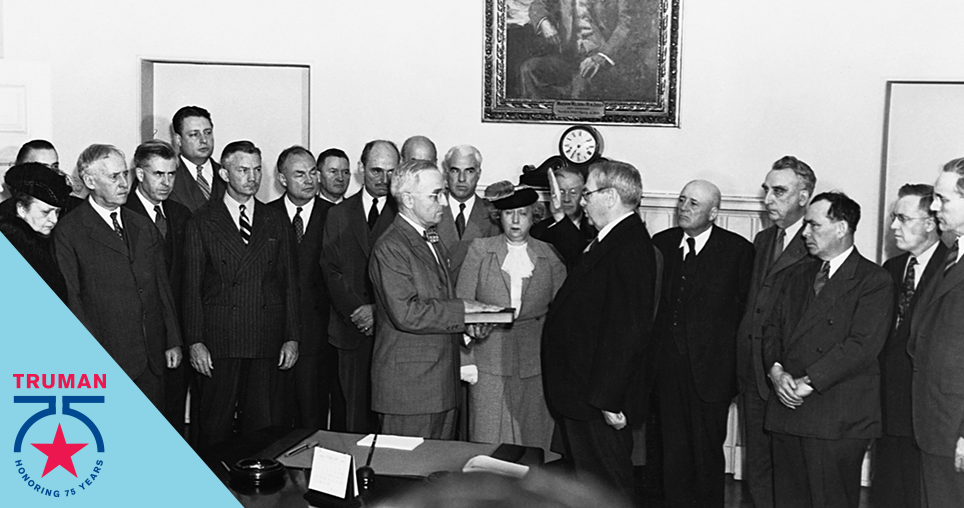
An Update on the Truman Library’s Transformation | March 27, 2020
The Truman Library’s transformative renovation project has made excellent progress through the winter. Below are updated photos taken on March 18. Read More
New at The Truman Library | March 18, 2020
Ernestine “Ernie” Wagner and Women’s Military Service
On June 12, 1948, Harry S. Truman signed the Women’s Armed Services Integration Act (WASIA) which allowed women to serve in official capacities in all four branches of the military. Most importantly, the act permitted women’s military service during peace time.
The WASIA paved the way for thousands of women’s military careers, including a Korean War veteran named Ernestine “Ernie” Wagner. Read More
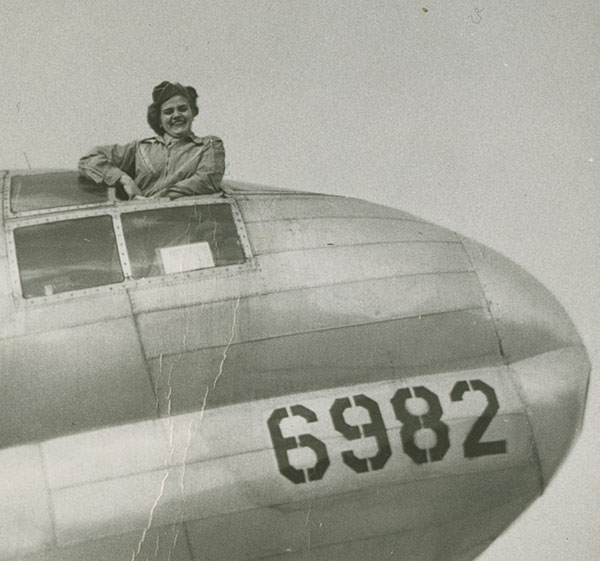
TRU History | March 16, 2020
Harry Truman and the 1918 Pandemic
In 1918, the most severe pandemic in recent history spread through the world at alarming rates. Nearly one-third of the world’s population became infected and approximately 50 million people succumbed world wide — over half a million in the United States.
The H1N1 virus, popularly referred to as the Spanish flu, began wreaking havoc around the globe just as World War I was coming to an end.
Thousands of American soldiers remained in Europe after the war’s conclusion due to logistical transportation issues. One soldier awaiting transport was Captain Harry S. Truman who led Battery D of the 35th Division. Read More
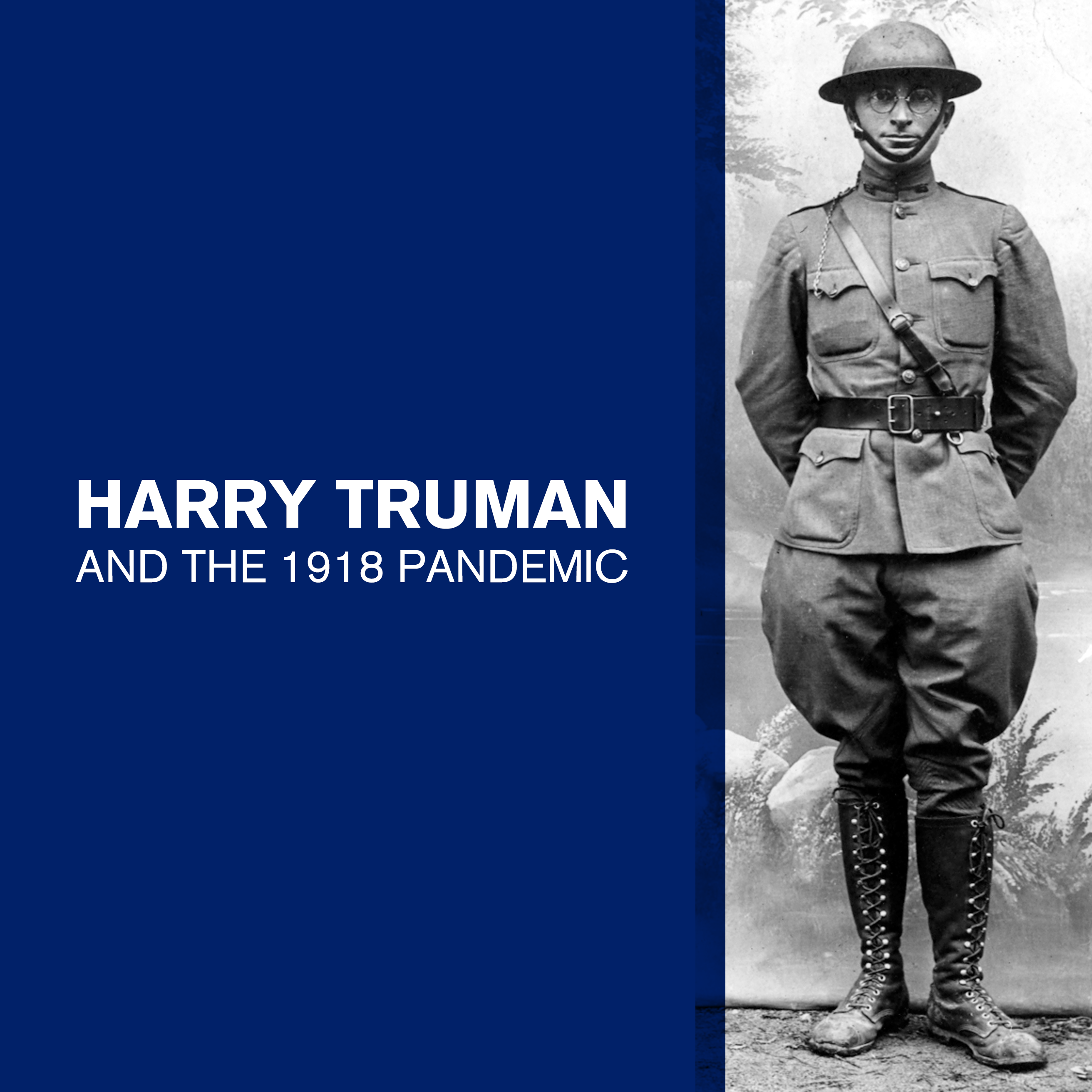
Truman Library Groundbreaking Ceremony | September 17, 2019
Gov. Parson, Archivist Ferriero and Clifton Truman Daniel Break Ground on Library
The Truman Library’s transformative renovation officially kicked off on September 5 with a groundbreaking ceremony featuring Missouri Governor Mike Parson, Archivist of the U.S. David Ferriero, Missouri State Senator John Rizzo, the president’s grandson Clifton Truman Daniel as well as many other local officials and friends of the Truman Library.
Highlights of the special remarks made from a few of our distinguished speakers include the following:



More than 125 friends, donors, board members and local dignitaries joined us for a very special day that will go into the books as one of the great days in the history of the Truman Library. The historic ceremony drew the attention of local media, with coverage from Fox 4, KMBC, KCTV 5, The Examiner and more.
The Truman Library is currently closed for a massive renovation. Learn more about the exciting future of the Truman Library here.
Join our email list to receive Truman updates right in your inbox:

Experiencing Truman While the Truman Library is Under Renovation | August 8, 2019
The Harry S. Truman Presidential Library and Museum is currently closed for a transformative renovation. A new museum entrance and permanent exhibition are scheduled for completion this fall in celebration of the 75th anniversary of Truman’s ascension to the presidency. Tour the new museum virtually in this fly-through video:
We invite you to learn more about this historic campaign and how you can get involved here, and follow us on Facebook, Twitter and Instagram for the latest updates on the project.
Meanwhile, if you are planning a trip to the Kansas City area, we encourage you to visit the other Truman-related sites in Independence and the surrounding areas: Read More
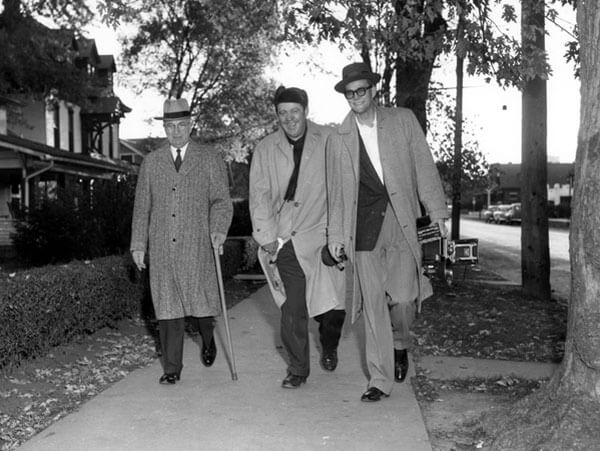
Event Preview | August 2, 2019
History Happy Hour: In the Kitchen with Bess
Friday, August 16, 2019 from 4:00-5:00 p.m.
Truman Library Institute
5151 Troost Ave., Ste. 300
Kansas City, MO 64110
On Friday, August 16, the Truman Library is hosting a History Happy Hour event featuring one of the Truman Library’s archivists, Tammy K. Williams. This event takes place at the Truman Library Institute in Kansas City and will feature Williams exploring Bess Truman’s recipe box, including recipes that she gave out and received, food trends in the 1940s and 1950s, and some of the Truman family favorite foods and meals.
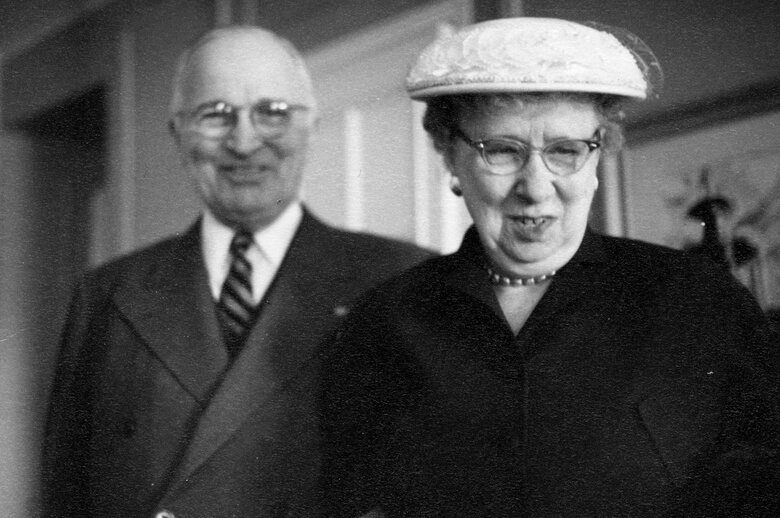
Museum Highlight | July 9, 2019
10 Things to See Before the Truman Library Closes for a Year
The Harry S. Truman Presidential Library and Museum recently announced a significant renovation that will close the Library for a year. Though the closing date, July 22, is approaching, there are still opportunities for guests to step into Harry and Bess Truman’s world before the doors close.

Event Preview | June 26, 2019
History Happy Hour: Women at War with Natalie Walker
Friday, July 12, 2019 from 4:00-5:00 p.m.
3 Trails Brewing
111 N. Main St.
Independence, MO 64050
On Friday, July 12, the Truman Library is hosting a History Happy Hour event featuring Truman Library Institute Museum / Archives Technician Natalie Walker. This event takes place at 3 Trails Brewing in on the Independence Square and will feature Walker examining what followed President Truman’s landmark decision to sign the Women’s Armed Services Integration Act (June 12, 1948). Walker will discuss the impact of the Women’s Armed Services Integration Act through the fascinating story of Ernie Wagner, who served in the Air Force in the Korean War. Enjoy a behind-the-scenes look of the Truman Library’s extensive collection as Walker uses artifacts and photos from Wagner to tell her story.

Event Preview | May 17, 2019
History Happy Hour: World War I and its Aftermath with Garrett Peck
Thursday, June 6, 2019
4:00-5:00 p.m.
Tom’s Town Distilling Company
On Thursday, June 6, the Truman Library is partnering with the National World War I Museum and Memorial for a History Happy Hour event featuring author and historian Garrett Peck. This special event takes place at Tom’s Town Distilling Company and will feature Peck discussing his latest book, The Great War in America: World War I and Its Aftermath, which examines the American experience during World War I and the unexpected changes that rocked the country in its immediate aftermath — the Red Scare, race riots, women’s suffrage and Prohibition, particularly timely on the centennial of the Armistice. Read More


